
Diabetes screening may be as simple as speaking into smartphone with new AI app, researchers say
By Melissa Rudy
Published November 08, 2023
Getting screened for type 2 diabetes could one day be as simple as speaking into your smartphone.
Currently, gauging diabetes risk requires fasting, taking a blood test and waiting days for the results.
In an effort to change that, researchers from Klick Applied Sciences in Toronto, Canada, have developed an artificial intelligence model that uses a 10-second voice recording to predict diabetes risk.
WHAT IS ARTIFICIAL INTELLIGENCE?
The AI program was shown to predict the disease with greater than 85% accuracy, according to a study published in the peer-reviewed journal Mayo Clinic Proceedings: Digital Health last month.
"One of the current challenges for screening and diagnosis is access to a doctor or lab to do a blood test," researcher Yan Fossat, a vice president of Klick Labs, told Fox News Digital. "This can mean time off from work, the cost [of] a physician visit and the cost of the lab test."
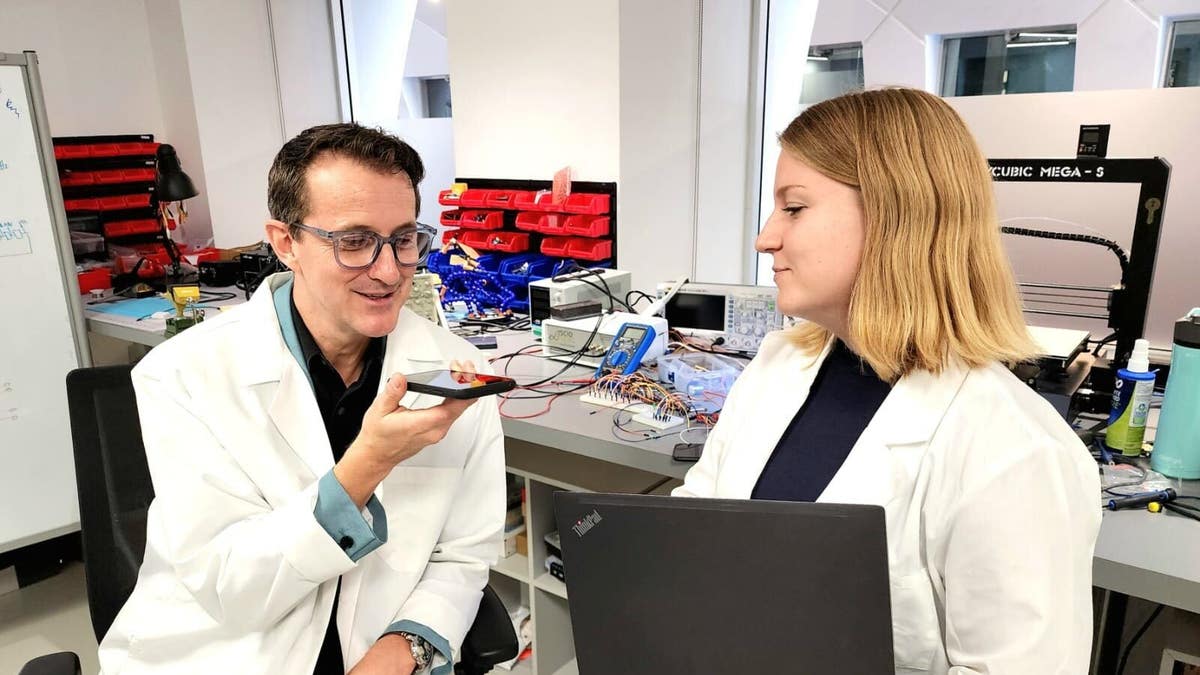
Researchers from Klick Applied Sciences in Toronto, Canada (Yan Fossat, left, and Jaycee Kaufman, right) have developed an AI model that uses a 10-second voice recording to predict diabetes risk. (Klick Labs)
Voice-based screening is much more accessible, Fossat noted, requiring only a smartphone.
YOUR DIABETES RISK MAY DOUBLE IF YOU EAT THIS FOOD TWICE A WEEK, SAY HARVARD RESEARCHERS
"The non-intrusive and accessible nature of the approach has the potential to screen vast numbers of people and help identify a number of undiagnosed people with type 2 diabetes," he said.
How can the voice ‘indicate’ diabetes?
Jaycee Kaufman, a research scientist at Klick Labs, said that while it’s not clear exactly which symptom of diabetes affects voice features, the disease can result in complications like peripheral neuropathy (weakness, numbness and pain from nerve damage), edema (swelling from fluid) or muscle weakness.
"These complications have been linked to changes in the strength or pitch of the voice — which is what we were looking for in our analysis," she told Fox News Digital.
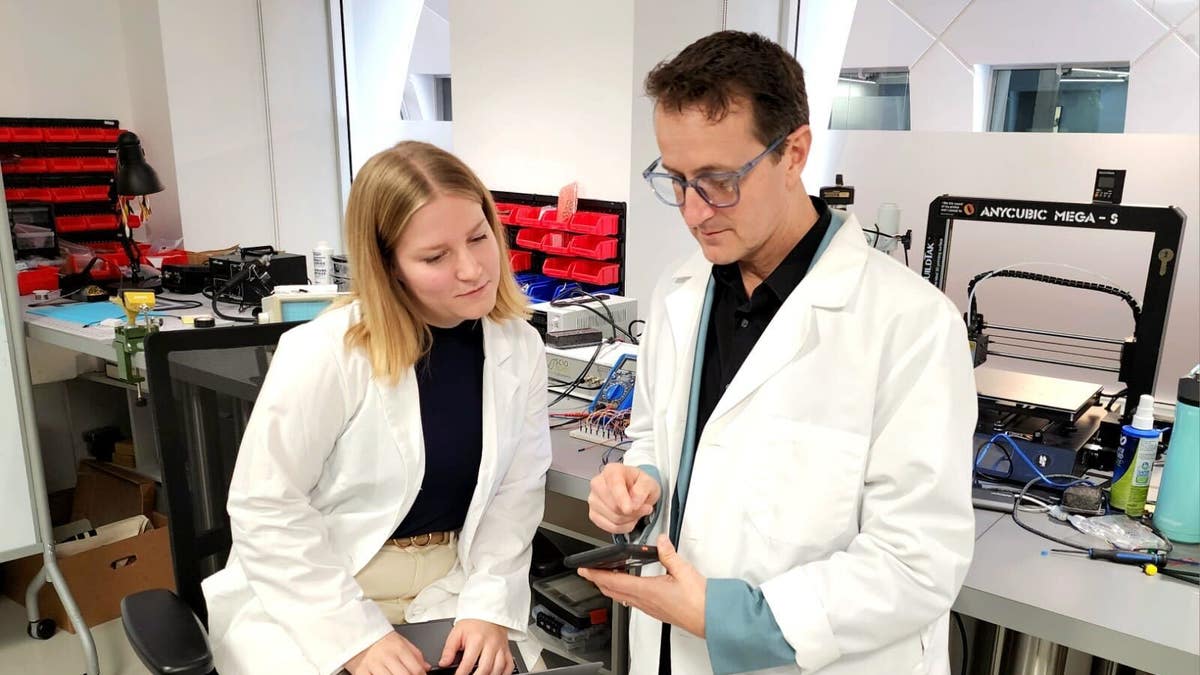
The AI program was shown to predict the disease with 85% accuracy, according to a study published in the peer-reviewed journal Mayo Clinic Proceedings: Digital Health last month. (Klick Labs)
The voice changes associated with type 2 diabetes differed between men and women, the researchers found.
"In women, the pitch and the variability of the pitch was affected, whereas in men, the strength and the variability of the strength was affected," said Kaufman.
"We believe this difference may stem from the fact that men and women experience the complications of type 2 diabetes differently, which ultimately impacts the voice differently."
In the study, 267 participants recorded their voices for two weeks, creating 18,465 recordings.
The researchers then analyzed the voice differences between people with type 2 diabetes and those without the disease — creating a prediction model for future analysis.
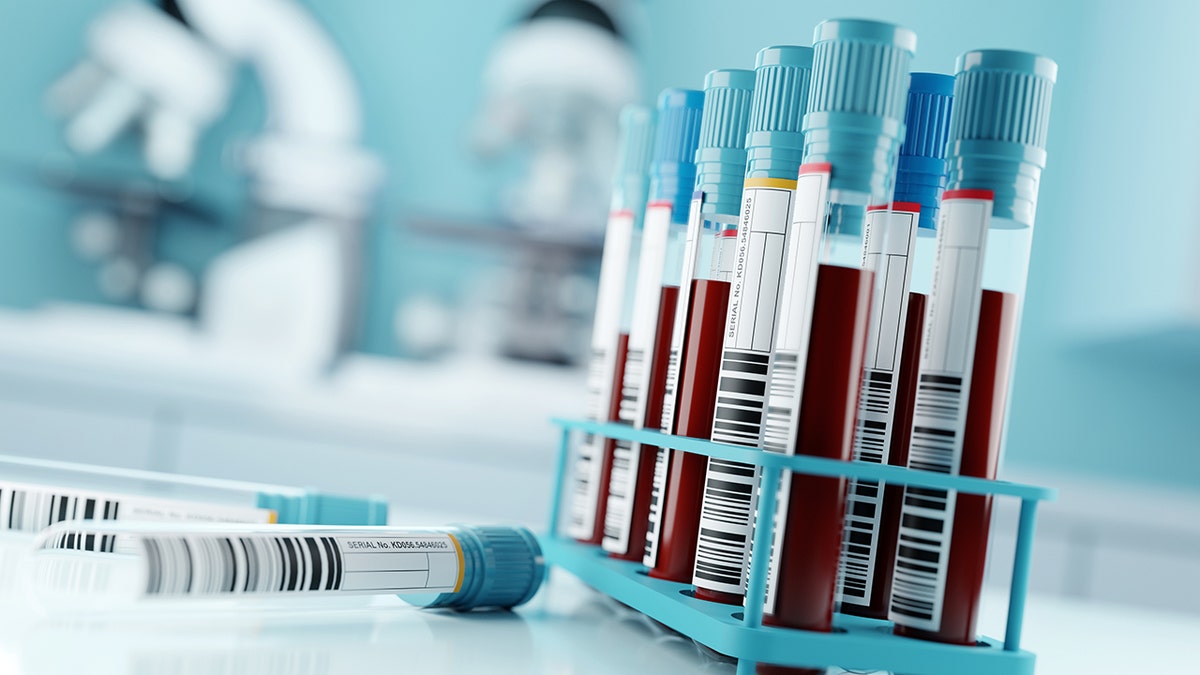
Currently, gauging diabetes risk requires fasting, taking a blood test and waiting days for the results. (iStock)
"We used AI and machine learning techniques to create a prediction algorithm for type 2 diabetes from the relevant voice features, along with basic health data, including age, sex, height and weight," said Kaufman.
They could then use the algorithm to analyze individual voice recordings and predict diabetic status, she said.
If someone’s voice is flagged, that person should get a blood test from their doctor to receive a diagnosis, the researchers said.
"Such advancements could be significant, but they must be approached cautiously to ensure that they serve patients' best interests."
"We aim to assist in getting more people in to see their doctor for a type 2 diabetes diagnosis," said Kaufman.
The researcher said she hopes this improves "patient health outcomes in the long term."
The AI model is still in the research phase, with plans for follow-up studies within the next year to ensure the effectiveness of the technique.
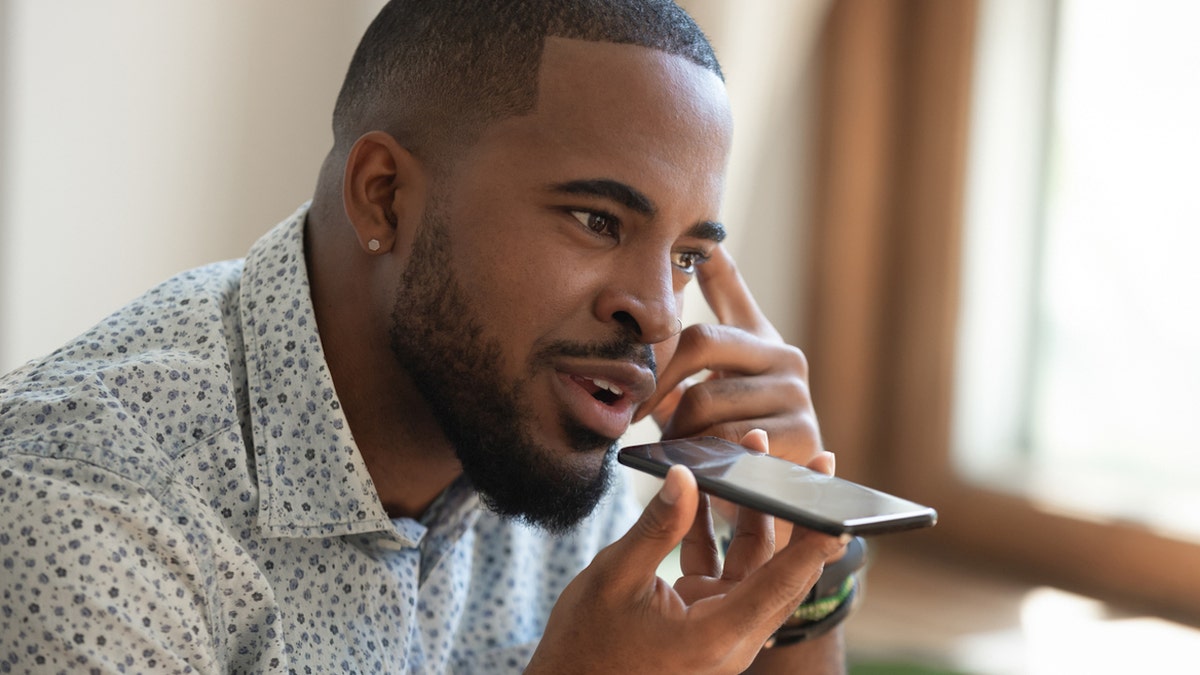
The voice changes associated with type 2 diabetes were different between men and women, the researchers found. (iStock)
"We’re looking to recruit new individuals from different regions of the world to validate and improve our current algorithm," Fossat told Fox News Digital.
"Following the success of this study, we hope this technology can become widely available so that people can screen for type 2 diabetes in their own homes."
The goal is to make this technology available as soon as possible after validation — perhaps even within the next few years, he said.
Expert weighs pros and cons
Dr. Harvey Castro, a Dallas, Texas-based board-certified emergency medicine physician and national speaker on AI in health care, spoke to Fox News Digital about the potential benefits of using voice models to screen for type 2 diabetes.
Castro agreed that such a tool will increase the accessibility of screening, "especially in resource-limited settings."
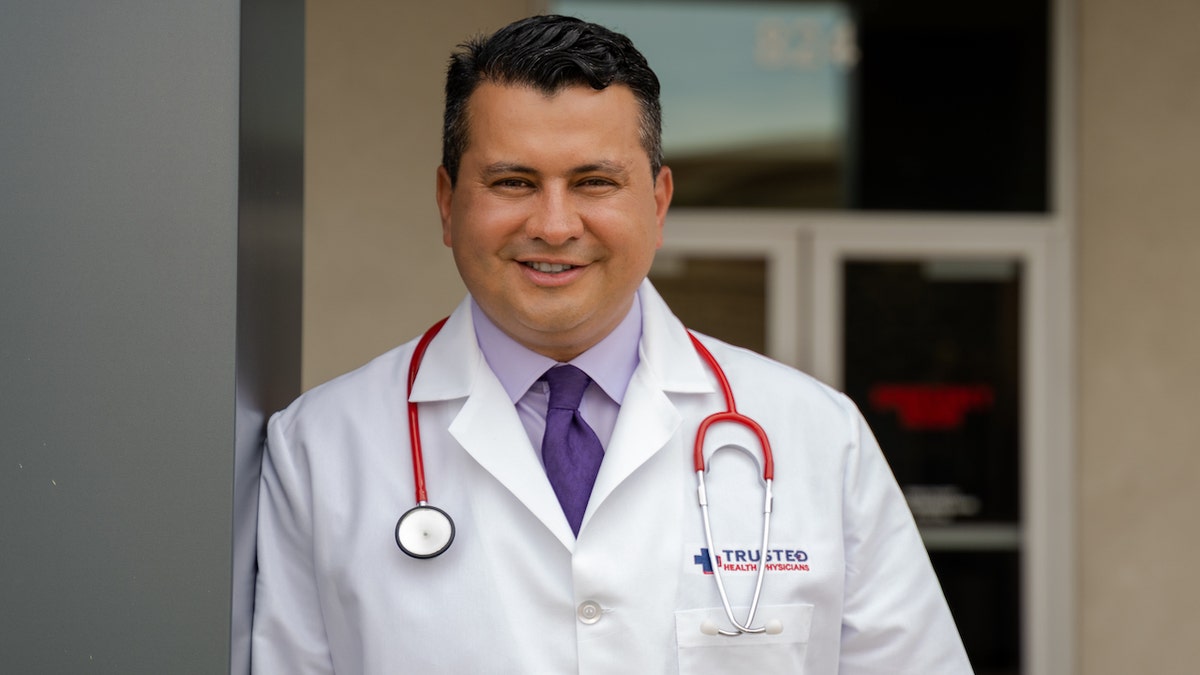
Dr. Harvey Castro, a Dallas, Texas-based board-certified emergency medicine physician and national speaker on AI in health care, spoke to Fox News Digital about the potential benefits of using voice models to screen for type 2 diabetes. (Dr. Harvey Castro)
"This method could facilitate early detection and intervention, potentially improving outcomes," he told Fox News Digital.
The tool could also provide a non-intrusive way to assess health risks, which might increase patient compliance, Castro said. (He was not involved in the Klick Applied Sciences research.)
There could be some limitations in terms of accuracy and reliability, the expert noted.
"The accuracy of AI in detecting diabetes from voice alone needs rigorous validation against current diagnostic methods," he said.
There could be variations in voice due to multiple factors, Castro noted — such as medical conditions, accents or temporary changes, like a cold, which could affect the AI's performance.
"The accuracy of AI in detecting diabetes from voice alone needs rigorous validation against current diagnostic methods."
Data privacy could also come into play, he suggested.
"Collecting and analyzing voice data raises concerns about the privacy and security of personal health information," said Castro.
CLICK HERE TO SIGN UP FOR OUR HEALTH NEWSLETTER
Before this type of tool is implemented, he stressed the need to ensure informed consent and to set clear use guidelines, especially when dealing with health-related data.
"While the prospect of using AI for diabetes risk detection is promising, it requires careful consideration of its clinical accuracy, adaptability to real-world variations and the ethical implications of its implementation," Castro concluded.
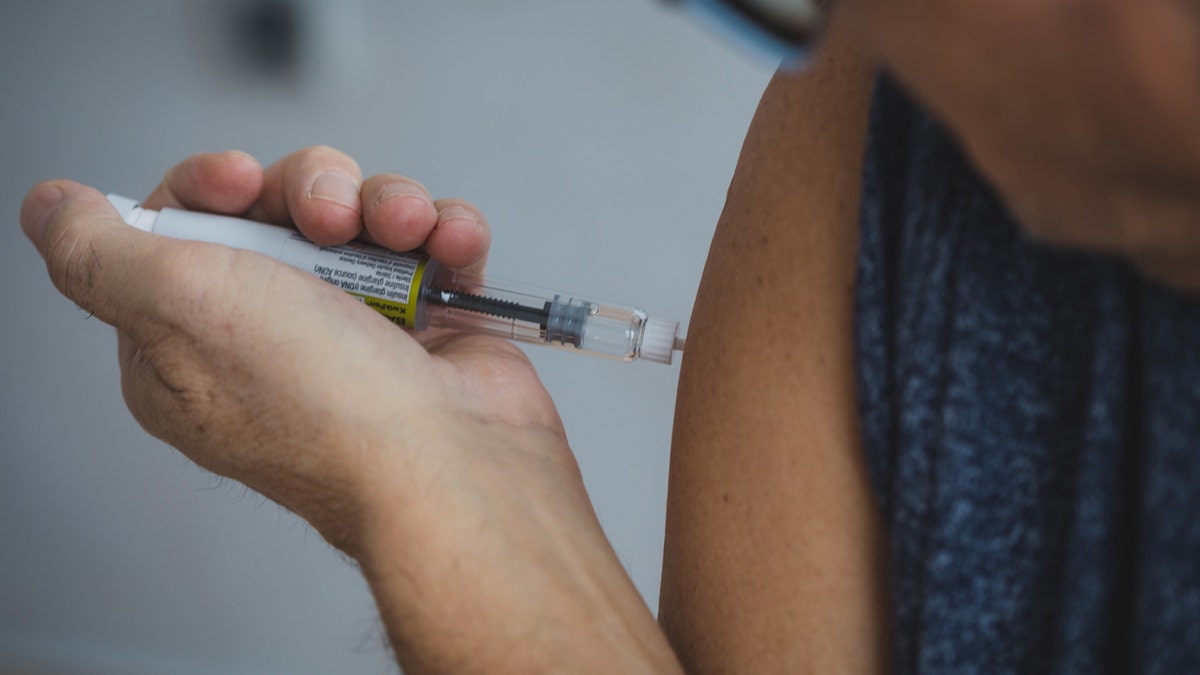
Nearly 90% of diabetic cases are Type 2 diabetes, according to the International Diabetes Federation. (iStock)
"Such advancements could be significant, but they must be approached cautiously to ensure that they serve patients' best interests."
Almost half of the 240 million adults living with diabetes worldwide are undiagnosed, and nearly 90% of cases are type 2 diabetes, according to the International Diabetes Federation.
CLICK HERE TO GET THE FOX NEWS APP
"Up to very recently, this kind of analysis was out of reach due to its complexity," Fossat noted. "The rise of powerful machine learning and AI now allows us to mine the voice for clues to people's health."
He added, "We are thrilled about the fact that this work is now possible, and are looking forward to what’s next."
For more Health articles, visit www.foxnews.com/health.
https://www.foxnews.com/health/diabetes-screening-may-be-simple-speaking-smartphone-new-ai-app-researchers-say
